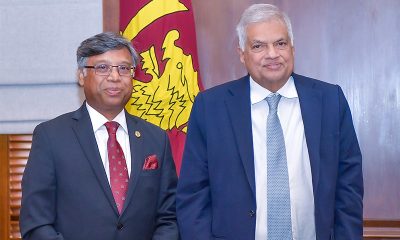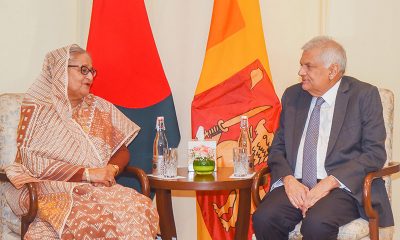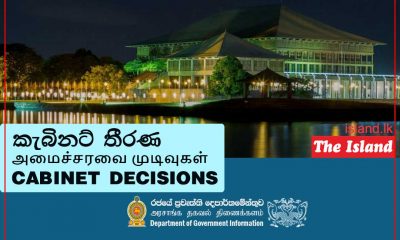Latest News
Cabinet nod for implementation of Agricultural Modernization Program
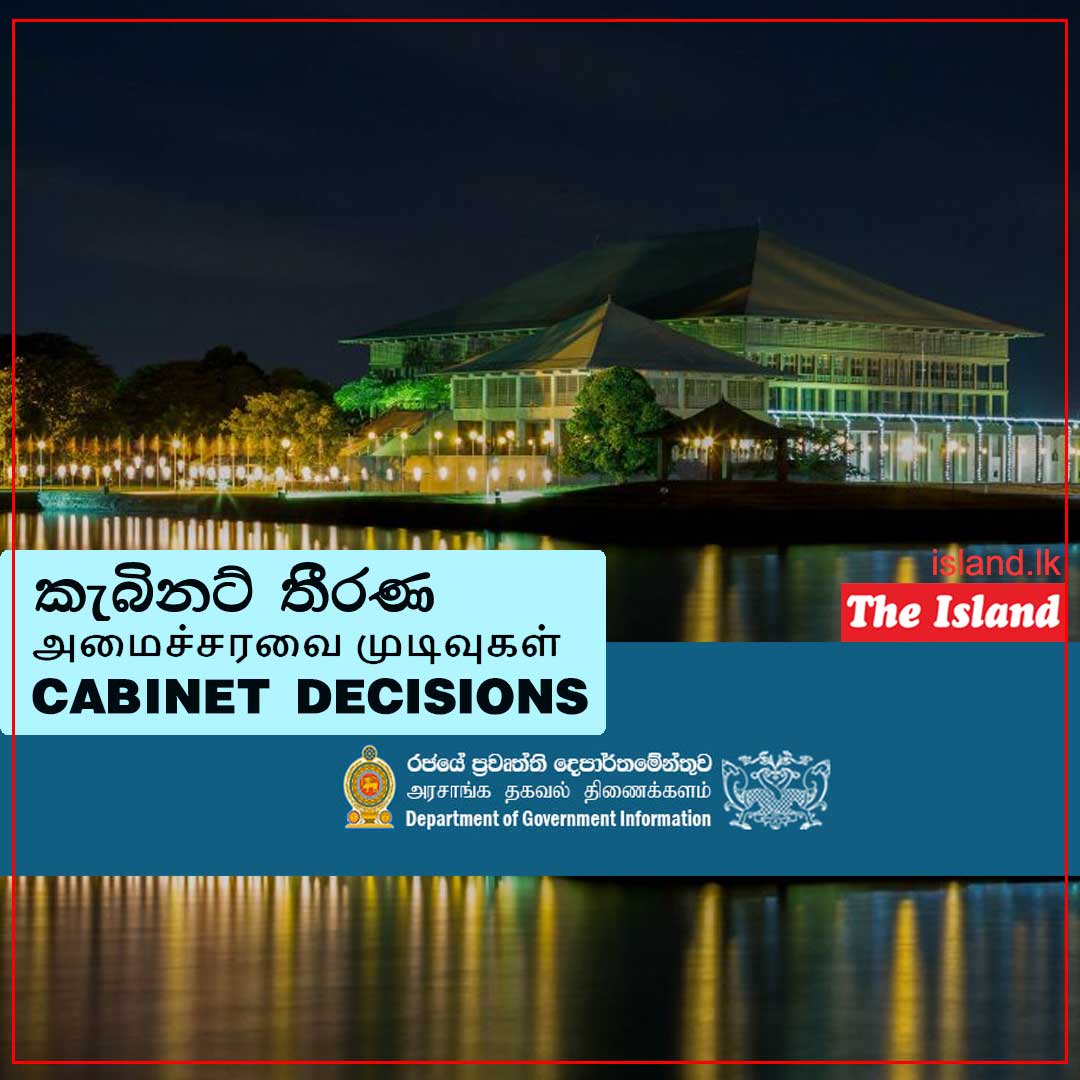
The Cabinet of Ministers approved the proposal presented by the President to implement the Agricultural Modernization Program by allocating 650 million rupees, 25 million rupees each for an agricultural modernization center in each of the 26 Divisional Secretariats selected for the implementation of the first phase of the pilot project and by allocating 175 million rupees with 35 million rupees each to the Department of Agriculture, Department of Export Agriculture, Department of Animal Production and Health, Department of Cinnamon Development and Sri Lanka National Aquaculture Development Authority.
Latest News
Fears of global instability drive Singapore voters into ruling party’s arms

Singapore’s ruling People’s Action Party (PAP) has won by a landslide in an election dominated by concerns over the cost of living and the country’s future economic stability.
Led by Prime Minister Lawrence Wong in his first election since he became party leader last year, the PAP clinched 65.6% of the vote and an overwhelming majority of the 97 seats in parliament.
Singaporeans went to the polls on Saturday worrying about inflation, wage stagnation and job prospects.
The result will be widely seen as a flight to safety to the PAP amid fears of global turbulence.
“Singapore feels particularly vulnerable given its economy’s size and exposure to international forces… Also we are notoriously risk-averse voters,” said Ian Chong, an associate professor in political science at the National University of Singapore (NUS).
The main opposition, the centre-left Workers’ Party (WP), failed to capture more seats but continued to hold on to its 10 seats in parliament.
The centre-right PAP has governed Singapore continuously since 1959, making it one of the longest-ruling political parties in the world.
It has enjoyed strong support from Singaporeans, particularly from older generations that have seen the country flourish under PAP rule.
But while elections have been free from fraud and irregularities, critics also say the party maintains an unfair advantage through gerrymandering and a tightly controlled media.
In the last three polls prior to Saturday’s result, the PAP saw two of its lowest-ever vote shares, while the WP made increasing inroads in parliament.
The PAP won a reduced majority in the 2020 election, in what was seen as a referendum on their handling of the Covid outbreak.
But Saturday’s result saw the PAP return to form, as voters gave Wong a strong mandate.
In a televised address early on Sunday, he thanked voters and said the results “will put Singapore in a better position to face this turbulent world”.
“Many are watching the election closely, whether it’s international media, investors or foreign governments, they would have taken note of tonight’s results,” he said.
“It’s a clear signal of trust, stability and confidence in your government. Singaporeans, too, can draw strength from this and look ahead to our future.”
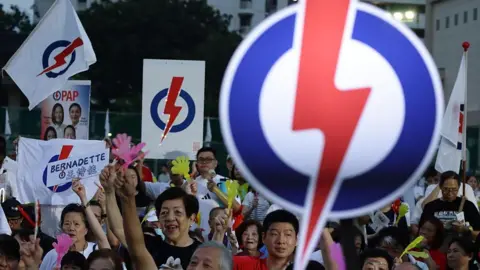
While its open and globalised economy remains fairly buoyant, Singapore saw inflation surge in the last few years.
The government has attributed this to external factors such as the Ukraine and Gaza wars and supply chain disruptions. Critics however say a controversial goods and services tax hike exacerbated it.
With the US-China trade war under way and a 10% US tariff looming, authorities and experts have warned of shocks to the economy and possibly a technical recession.
Against this backdrop, the PAP campaigned on a message of stability.
Wong repeatedly promised that his team would “steer Singapore through the storm”, while warning that if more opposition MPs were elected, he would lose capable ministers at a time when good governance was most needed.
It was a message that resounded with many voters. One PAP supporter, a start-up owner who only wanted to be known as Amanda, told the BBC that her business has been affected with clients pausing some projects due to the economic climate. “The headwinds are not great, there’s a lot of uncertainty… I want a party with experience running the government,” she said.
Though the PAP saw a series of scandals in recent years, including one involving a cabinet minister. this was hardly a talking point during the election period. Analysts said it was further from people’s minds given more immediate concerns about the economy.
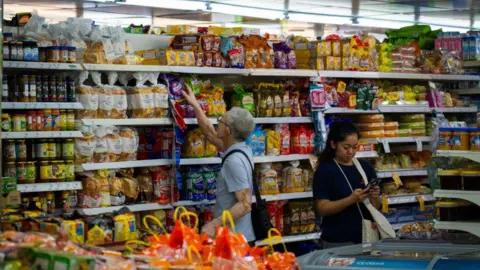
Some see the result as a sign of confidence in Wong, who led Singapore’s Covid taskforce and became a familiar face as he regularly addressed the public during the pandemic.
“He’s shown that he is capable, with the Covid taskforce giving him credence. He was the guiding hand on that rudder… and he projects that stability for future global financial uncertainties,” said Rebecca Tan, a political science lecturer with NUS.
Wong is the first PAP prime minister to have improved the party’s vote share in his first election. Previous PMs saw dips in the polls in what analysts used to call the “new PM” effect”, or a reflection of voters’ uncertainty in a new leader.
The PAP’s strong result was also partly due to a fragmented opposition, with 10 parties going up against them. With few exceptions, most performed poorly.
Teo Kay Key, a research fellow at the think tank Institute of Policy Studies, said that despite recent elections showing there was a desire for political diversity, the latest result “shows that people are happy with the number of opposition MPs” for now.
But, she added, Singaporeans also “seem to be more selective” now when it comes to casting votes for the opposition, pointing to the WP’s performance.
The WP had campaigned on a platform of lowering the cost of living and strengthening the safety net.
While it failed to win more seats, it also saw increased vote shares in the constituencies it retained and close fights with the PAP in others, cementing its status as the country’s strongest opposition party.
It turned in a robust performance despite recent controversial cases involving a former Workers’ Party MP and WP leader Pritam Singh, who were both found guilty of lying to parliament. Many in the WP’s support base believe the case, against Singh especially, was politically motivated.
Addressing supporters shortly after the results for his constituency were declared, Singh acknowledged that “it was always going to be a difficult election”.
But he added: “The slate is wiped clean, we start work again tomorrow, and we go again.”

[BBC]
Foreign News
Australia PM Albanese makes stunning comeback with landslide win

Labor’s Anthony Albanese has defied the so-called “incumbency curse” to be re-elected Australia’s prime minister in a landslide win.
Official vote counting won’t finish for days, but Albanese’s centre-left government will dramatically increase its majority after the conservative Liberal-National coalition suffered a thumping defeat nationwide.
“Today, the Australian people have voted for Australian values: for fairness, aspiration and opportunity for all; for the strength to show courage in adversity and kindness to those in need,” Albanese said.
Coalition leader Peter Dutton, who lost his own seat of 24 years, said he accepted “full responsibility” for his party’s loss and apologised to his MPs.
Following the result, UK Prime Minister Sir Keir Starmer and US Secretary of State Marco Rubio both said they looked forward to deepening their bilateral relationships with Australia.
Labor has seen swings towards them right across the country – a rare feat for a second-term government in Australia – and Albanese becomes the first prime minister to win back-to-back elections in over 20 years.
The party’s success has also tempered a trend of voters abandoning the two major parties, which was the big story of the last election in 2022.
Labor is on track to finish with 85 seats, the Coalition about 40, and the Greens Party with one or two, according to projections by the Australian Broadcasting Corporation (ABC). Other minor parties and independents are ahead in nine seats.
That represents an increase of nine for Labor and a significant drop in support for the Greens. However most “teal” independents have been returned in their more conservative, inner-city electorates.
It’s a remarkable turnaround from the start of the year, when polling put Albanese’s popularity at record lows after three years of global economic pain, tense national debate, and growing government dissatisfaction.
The five-week campaign was dominated by cost-of-living concerns – particularly the affordability of healthcare and housing – with issues like energy and climate change, international relations, and migration also rearing their heads.
Albanese touched on most of them on Saturday night. He reiterated his promises to make healthcare – most critically GP appointments – more affordable, put buying a house in reach for more Australians, and do more to address climate change and protect the environment.
Notably, he also vowed to advance reconciliation for First Nations people: “We will be a stronger nation when we Close the Gap between Indigenous and non-Indigenous Australians.”
It’s a veiled referenced to the biggest moment of Albanese’s tenure, the failed Voice referendum of October 2023, which sought to recognise Aboriginal and Torres Strait Islander people in the constitution, and simultaneously establish a parliamentary advisory body for them.
Australia remains the only Commonwealth country to have never signed a treaty with its Indigenous people.
The Voice was one of Albanese’s most defining policies, and his most striking setback – it was overwhelmingly rejected after months of often toxic and divisive national debate.
Indigenous Australians have told the BBC they feel like they’ve been forgotten by policymakers since.
The prime minister also found difficulty trying to walk a middle path on the Israel-Gaza war, raised eyebrows after buying a multi million dollar beach pad as voters grappled with a housing crisis and, like other leaders globally, grappled with tough economic conditions.
With tanking poll numbers, Albanese was broadly seen as the underdog coming into the election, and was poised to be the next victim of the “incumbency curse” – a term to explain a global trend where struggling constituents were turfing out governments after a single term.
Dutton, on the other hand, looked like he was writing a great political comeback – he was on the edge of bringing his party from its worst loss in 70 years back into office in a single term.
It has been almost a century since a first-term government has failed to win re-election, but as Australian National University Emeritus Professor John Warhurst said: “Dutton entered the campaign [year] in front. It was his to lose.”
Instead tonight Dutton has overseen a party loss so emphatic he has lost his own electorate of Dickson, to Labor’s Ali France.
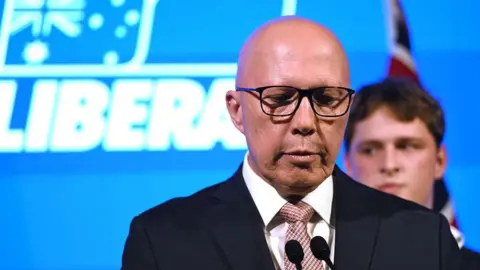
“I love this country and have fought hard for it,” he told supporters in Brisbane, conceding defeat.
“We have been defined by our opponents in this election which is not a true story of who we are, but we will rebuild from here and we will do that because we know our values, we know our beliefs, and we will always stick to them.”
His campaign was marred by unforced errors: including a series of policy backflips which caused confusion, awkward mistakes on important issues like cost of living and, perhaps most memorably, accidentally booting an AFL ball into a cameraman’s head.
[BBC]
Latest News
Those who benefited from irregular and unregulated systems are currently opposing the reform efforts of the government – PM

Prime Minister Dr. Harini Amarasuriya stated that those who benefited from irregular and unregulated systems are currently opposing the reform efforts of the government and that the government possesses a coherent and methodical strategy aimed at addressing the public’s concerns through sustainable and permanent solutions, rather than offering temporary responses.
The Prime Minister made these remarks today (03 May), while addressing a public gathering held in the municipalities of Kaduwela and Dehiwala, Mount Lavinia.
Addressing the gathering, Prime Minister further stated:
You are well aware of the state the country was in when we assumed office. It is not only the political culture that necessitated change, but a similar transformation was also required within the public sector. That transformation is currently underway.
In addressing issues such as flooding, our response has been limited to relief services. However, we must move beyond that and implement systems to minimize and manage such disasters. This same pattern where temporary solutions were implemented without proper mechanisms can be seen across all sectors. Similarly, the public service has become accustomed to this ineffective approach.
When systemic reforms are introduced in a culture that is accustomed to disorder, those who previously benefited from the irregularities perceive these changes as a threat to their interests and therefore resist. These groups are attempting to obstruct the process of transformation.
Nevertheless, the country cannot progress under the prevailing methods. It was precisely due to such flawed systems that our economy collapsed. Now, with a methodical and structured approach, the government is steadily restoring economic stability. These systems are being developed to equip the nation to face ongoing and future economic challenges.
Decisions taken by U.S. President Donald Trump has had significant global ramifications, impacting both Europe and Asia. The long-standing belief that certain countries will always dominate the global economy is being challenged. Amidst this shift, new economic opportunities are arising, and Asia is poised to take a leading role in the global economic order. Sri Lanka must therefore determine where it stands within this evolving context. To do so, we must manage our international relations prudently and establish transparent governance systems. Our objective is to achieve long-term stability through these means.
We have not yet been able to fill teacher vacancies, which has led to a crisis. The lack of planning and reactive decision-making have severely affected the education sector. This is indicative of the wider trend across national issues offering surface-level solutions while failing to resolve the underlying causes. It is imperative that this government works in such a way that no unresolved issues are passed on to the next administration.
The grade five Scholarship examination has become a matter of concern. The issue does not lie in the awarding of scholarships, but in the necessity for students to transfer to schools with better facilities in order to access them. To rectify this, the disparities among schools must be addressed. The government has already commenced work in this regard through a planned and coordinated approach.
We continue to identify the problems faced by citizens and develop both short-term and long-term solutions accordingly. Step by step, we are moving forward in rebuilding international confidence, attracting investment, and laying a strong foundation for the country’s future.
The implementation of the law by the police was previously hindered by the political culture which prevailed at the time. These institutional issues are now being rectified.”
The Prime Minister underscored that the establishment of a constructive political culture is essential for the development of the country and that public support is vital in advancing the government’s national development agenda.
[Prime Minister’s Media Division]
-

 News7 days ago
News7 days agoLankan ‘snow-white’ monkeys become a magnet for tourists
-

 News7 days ago
News7 days agoNew Lankan HC to Australia assumes duties
-

 Business7 days ago
Business7 days agoPick My Pet wins Best Pet Boarding and Grooming Facilitator award
-

 News5 days ago
News5 days agoJapan-funded anti-corruption project launched again
-

 Features7 days ago
Features7 days agoKing Donald and the executive presidency
-

 Business7 days ago
Business7 days agoACHE Honoured as best institute for American-standard education
-

 News5 days ago
News5 days agoSethmi Premadasa youngest Sri Lankan to perform at world-renowned Musikverein in Vienna
-

 Business5 days ago
Business5 days agoNational Savings Bank appoints Ajith Akmeemana,Chief Financial Officer



